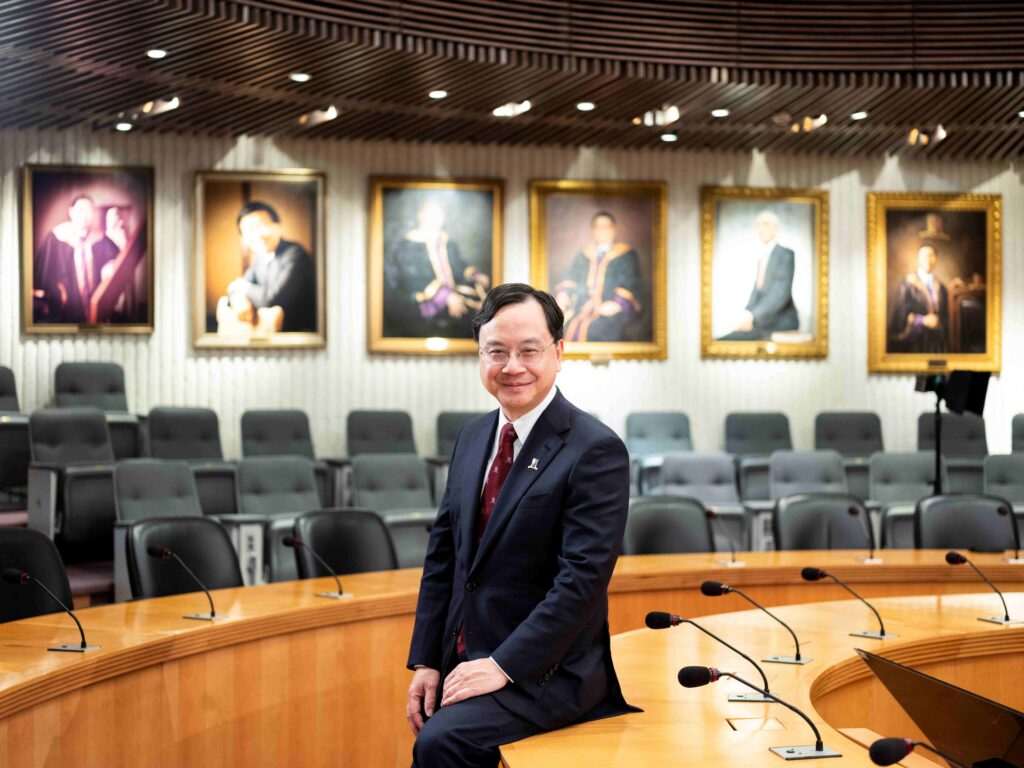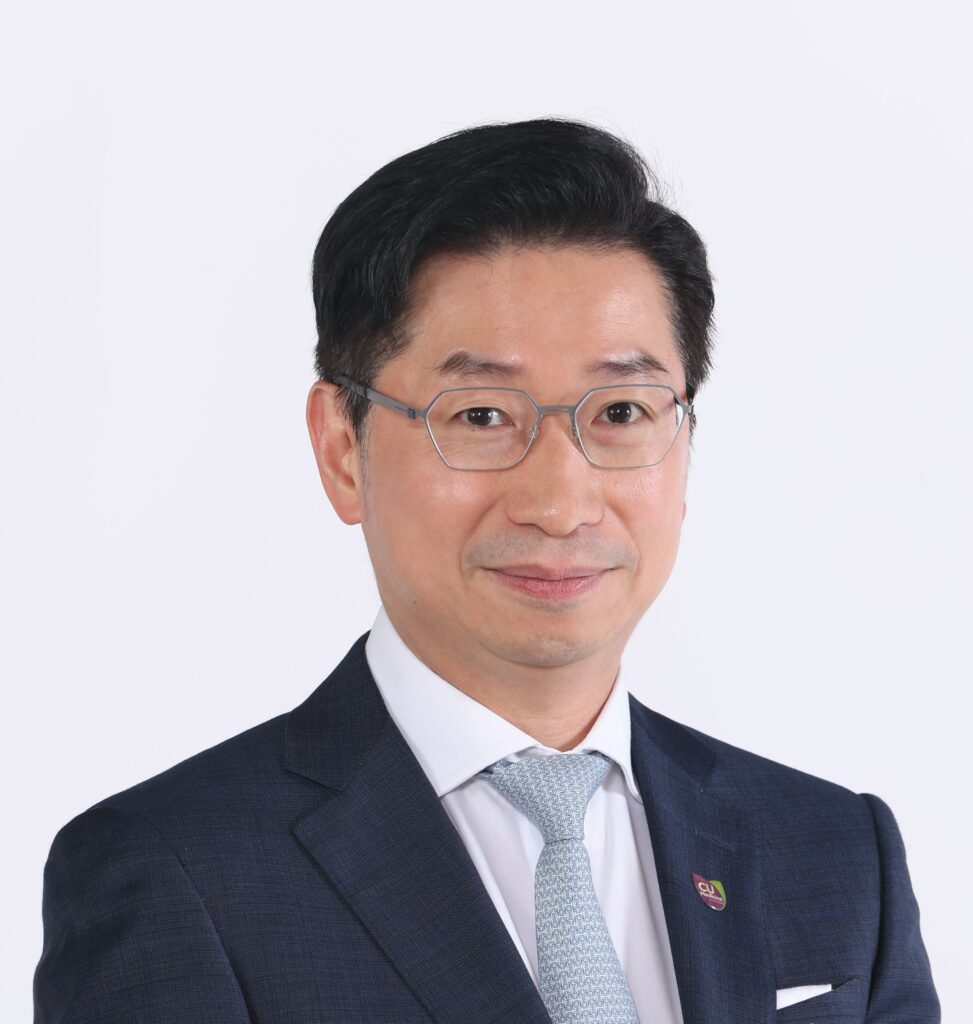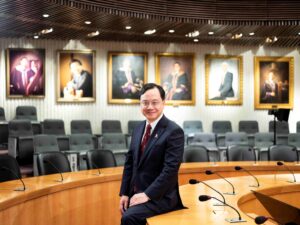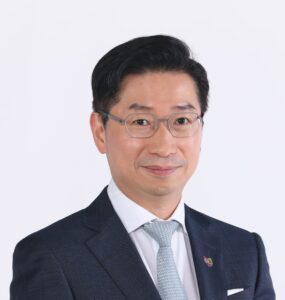CUHK
News Centre
CUHK Vice-Chancellor and President Professor Dennis Lo Yuk-ming and Dean of CU Medicine Professor Philip Chiu elected as foreign members of the Academia Europaea
Professor Dennis Lo Yuk-ming, Vice-Chancellor and President of The Chinese University of Hong Kong (CUHK) and Professor Philip Chiu Wai-yan, Dean of CUHK’s Faculty of Medicine (CU Medicine), have been elected as foreign members of the Academia Europaea this year, in recognition of their distinguished contributions to clinical care and medical innovation for the betterment of global health.
The father of non-invasive prenatal testing
Professor Dennis Lo is the Vice-Chancellor and President, the Li Ka Shing Professor of Medicine, and the Professor of Chemical pathology of CUHK. He joined CUHK in 1997. In the same year, he reported the presence of cell-free fetal DNA in maternal plasma, laying the important foundation for non-invasive DNA-based prenatal testing. He and his colleagues have been instrumental in making non-invasive DNA-based prenatal testing a clinical reality. The non-invasive prenatal test (NIPT) they developed for Down syndrome is regarded as a significant breakthrough by the global scientific community. It has now been adopted in more than 100 countries and used by over 100 million pregnant women worldwide. Furthermore, Professor Lo has developed genome-wide genetic and epigenetic approaches that facilitate the early detection of multiple types of cancer, propelling cancer liquid biopsy into the era of genome-wide analysis. He and his team have successfully developed technologies that allow for their detection and clinical applications.
In recognition of his work, Professor Lo has received numerous international honours and awards. He was elected a Fellow of the Royal Society in 2011 and an International Member of the US National Academy of Sciences in 2013. He received the 2014 King Faisal International Prize for Medicine and became the first Chinese scientist to be honoured with the American Association of Clinical Chemistry (AACC) Wallace H. Coulter Lectureship Award in 2015. In 2016, Professor Lo was selected as the winner of the inaugural Future Science Prize in Life Science, which is regarded as China’s Nobel Prize. In the same year, he was named the Thomson Reuters Citation Laureate in Chemistry, an honour considered as a predictive index of the Nobel Prize. He was also the first Chinese recipient of the Fudan-Zhongzhi Science Award in 2019. In 2021, he received the Breakthrough Prize in Life Sciences, widely known as the “Oscars of Science”, and became the first Chinese scientist to receive the Royal Medal in biological sciences from the Royal Society of London. In 2022, Professor Lo was awarded the Lasker-DeBakey Clinical Medical Research Award, widely regarded as the US’s top biomedical research prize. In 2023, he was elected as a member of the Chinese Academy of Sciences and received the inaugural Tengchong Science Award. In 2024, he became the first Chinese scholar to receive the prestigious Jiménez Díaz Lecture Award. In 2025, Professor Lo was awarded the Richard B. Johnston, Jr., MD Prize in Developmental Biology.
Professor Lo said: “I am deeply honoured to be elected as a foreign member of the Academia Europaea. This is tremendous encouragement for my scientific research work. Helping pregnant women worldwide through non-invasive prenatal testing, making prenatal testing safer and more accurate, represents a significant milestone in my research career. I will continue to collaborate with my global scientific peers to advance global healthcare development and contribute to translating cutting-edge research findings into clinical applications for the benefit of the world.”
A world authority in endoscopic and robotic surgery
Professor Philip Chiu currently serves as Dean of CU Medicine, Shun Hing Education and Charity Fund Professor of Robotic Surgery, Director of CUHK’s Multi-Scale Medical Robotics Center, and the Director of Endoscopy at the Prince of Wales Hospital and the New Territories East Cluster of the Hong Kong Hospital Authority. He is an internationally renowned scholar of upper gastrointestinal surgery and a pioneer of novel endoscopic and robotic surgery. His research interests include esophageal cancer management, minimally invasive and robotic esophagectomy, novel endoscopic technologies for diagnosis of early gastrointestinal (GI) cancers, endoscopic surgery and robotics for endoluminal surgery. Professor Chiu has significantly advanced the field of endoscopic surgery. He was the first to perform endoscopic submucosal dissection (ESD) for treatment of early GI cancer in Hong Kong, in 2004. In 2010, he performed the first Per-oral Endoscopic Myotomy (POEM) in Hong Kong. He pioneered the world’s first robotic gastric ESD in 2011, followed by the world’s first robotic colorectal ESD in 2020.
The professor has published nearly 400 peer-reviewed manuscripts and six book chapters. His recent publication on the world’s first clinical study of robotic colorectal ESD earned him the Most Innovative Paper Award from the prestigious international journal Endoscopy. His dedication to education and partnership is reflected in his leadership roles in numerous professional societies, including past presidencies of the Hong Kong Society of Digestive Endoscopy and the Endoscopic and Laparoscopic Surgeons of Asia (ELSA). In 2013, he founded the Asian Novel Bio-Imaging & Intervention Group (ANBIIG) to advance training in early GI cancer diagnosis across the Asia-Pacific region.
Professor Chiu has received numerous prestigious awards for his achievements, including a State Scientific Technology and Progress Award from the People’s Republic of China; and a 2nd class award in Technological Advancement from the Ministry of Education of the People’s Republic of China. One of his research abstracts was awarded Best of Digestive Disease Week, the United States. He has also been the Champion of the World Cup of Endoscopy, from the American Society of Gastrointestinal Endoscopy, and was selected for an Asia Pacific Digestive Week JGHF Emerging Leader Lectureship and as a Global Outstanding Chinese Youth. He has received two Gold Medals with Congratulations from the Jury at the International Exhibitions of Inventions of Geneva and the Spirit of Hong Kong Award in Innovation. In 2023, he was bestowed Honorary Membership of the European Association of Endoscopic Surgery and the Karl-Storz-Harold Hopkins Golden Telescope Award at the Hamlyn Symposium on Medical Robotics by Imperial College London.
Professor Chiu remarked: “It is an honour to be elected as a foreign member of the Academia Europaea, a recognition that reflects the dedication and innovative spirit of my colleagues and partners. This achievement comes at a time when CU Medicine is recognised as the youngest medical school among the world’s top 25 in several global rankings, a testament to the academic excellence and transformative discoveries that define our presence, driven by a shared vision of transforming passion into perfection with some of the world’s brightest talents.”
About the Academia Europaea
Established in 1988, the Academia Europaea is a Pan-European Academy of Sciences, Humanities and Letters. It is a European non-governmental association acting as an academy and comprises over 5,500 members, including nearly 90 Nobel laureates. Its objective is the advancement and propagation of excellence in scholarship in the humanities; law; economic, social and political sciences; mathematics; medicine; and all branches of natural and technological sciences, for the public benefit and the advancement of public education.







